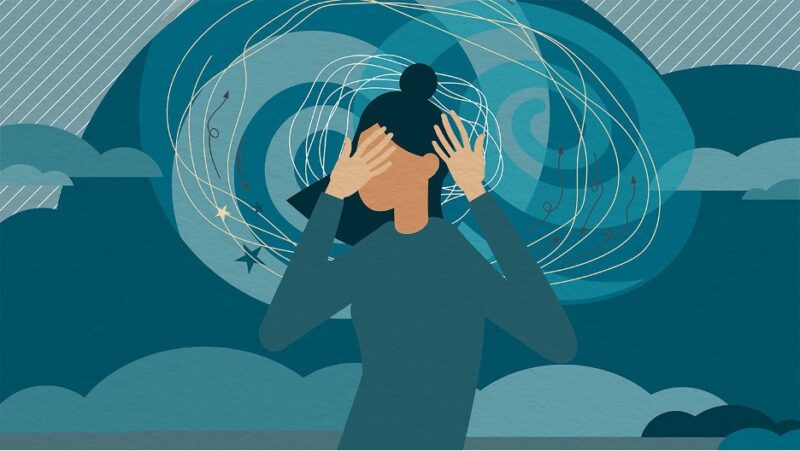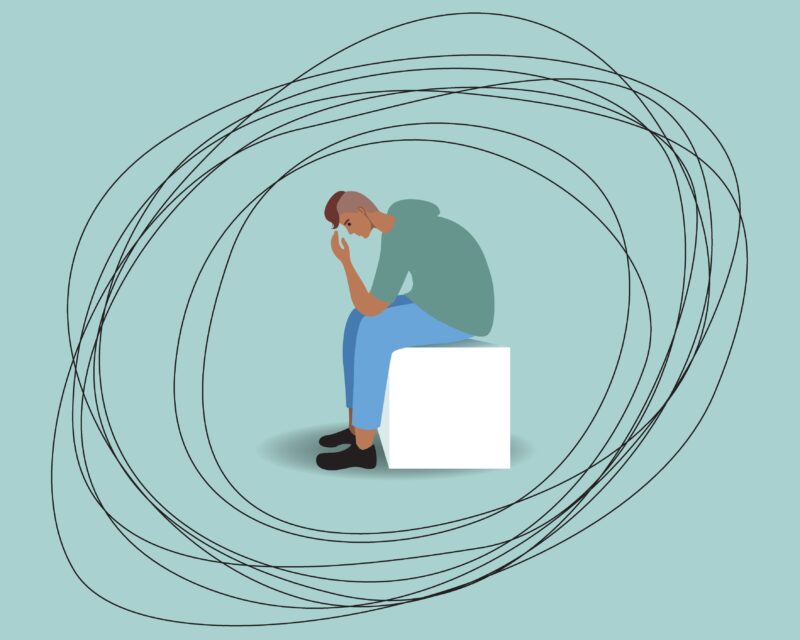The article is developed in partnership with BetterHelp.
If you were to survey 100 random people about something they correlate with post-traumatic stress disorder (PTSD), at least 90 will probably mention being a military veteran. Being in the military can expose personnel to potentially PTSD-triggering events, but this mental health condition can result from a wide array of traumatic events. It can even be triggered by an auto accident, which is experienced by most drivers at least once in their lives.
In this post, we’ll explain what exactly PTSD is, some common triggers of the condition, and ways to treat this complex mental health condition.
What Is PTSD?

PTSD is defined as a psychiatric disorder marked by a prolonged reaction to a traumatic event or series of events. People with it often have unpleasant flashbacks, which are often preceded by reminders of the triggering event—a similar sound, sight, or smell. Symptoms involved in these flashbacks can include anxiety or panic attacks, depression, nightmares, and thoughts of suicide.
If you have thoughts about harming or killing yourself, the new 988 Suicide & Crisis Lifeline is here for confidential, round-the-clock support. You can call 988, text 988, or visit the lifeline’s website to chat with an advocate.
A formal diagnosis of PTSD can only occur after having symptoms that last for one month and interfere with your ability to take care of yourself or perform routine, day-to-day tasks. The symptoms, which usually surface within five months of the traumatic event, can last indefinitely.
Common Triggers of PTSD

PTSD affects people of nearly every race, gender, ethnicity, and age. Physical harm does not have to happen to you in order to be diagnosed; PTSD is often caused by emotional abuse, a concept discussed further in BetterHelp articles: https://www.betterhelp.com/advice/ptsd/can-you-develop-ptsd-from-emotional-abuse/
Being In Or Near Military Combat
Military personnel, especially those deployed to theaters of war, can be part of many life-or-death situations. Being in combat zones can lead to members being shot and shot at; they may also witness traumatic deaths or take part in treating battlefield injuries. Those in the military also have a raised risk of being sexually assaulted, a significant and growing problem among the nation’s armed forces.
Witnessing A Natural Disaster
Weather phenomena, such as the devastating 2004 Indian Ocean tsunamis, can result in thousands of casualties within the span of a few minutes. Such disasters can come without warning and lead to millions of dollars in property damage. The emotional scars can last for years and decades after, as many people must grapple with seeing death and destruction. These challenges are only growing as climate change results in more severe and frequent storms.
Being In The Hospital
Although hospital centers treat various ailments, many people associate hospitals only with catastrophic injuries and illnesses. Although the majority of people admitted to the hospital get discharged within a few days, being in a strange environment with so many medical contraptions applied to your body can certainly be overwhelming.
You may have a greater chance of contracting PTSD if you get admitted to the intensive care unit (ICU). Many ICU patients must be intubated, medically sedated, or placed into a coma; this loss of control may be traumatic for some patients.
Having A Crime Committed Against You

Plenty of crimes—especially felonies—result in physical harm to the victim. Other crimes can result in property loss that leaves victims feeling vulnerable. Having your sense of agency violated via unlawful acts is one of the most common ways people develop PTSD. This risk can be compounded if you have to participate in a prolonged investigation, testify against a defendant in court, or otherwise be reminded of your trauma.
Being A Domestic Abuse Survivor
Domestic violence or abuse, commonly referred to as intimate partner violence (IPV) if the affected parties do not live together, affects people of every gender. More than one in four women report being the subject of IPV, and more than one in 10 men report the same, which can consist of physical violence, emotional abuse, threats of violence or abuse, and stalking. Getting treated like this from someone close to you is a common precursor to PTSD.
If you have been the subject of domestic or intimate partner violence or worry about your safety in the company of your partner(s), help is a phone call or a few clicks away. You may visit the National Domestic Violence Hotline online or call 1.800.799.SAFE (7233) at any time to speak with trained advocates.
Getting Harassed
Harassment, generally speaking, is repeated and unwanted communications or communication attempts. The definition of criminal harassment varies among states and countries, but it usually consists of offensive, threatening, or demeaning behavior. Stalking and bullying, which can trigger PTSD, fall into this broad category and result in one or more mental health conditions.
Common PTSD Treatments

After seeing a doctor and getting a PTSD diagnosis, you can start one or more treatments to lessen the symptoms and regain a sense of control over your life. Some patients start with talk therapy, while others employ a multi-pronged approach to PTSD treatments.
Cognitive Behavioral Therapy
Cognitive behavioral therapy, or CBT, is a common type of psychotherapy and can treat many mental health conditions. The primary purpose of CBT is to recognize and challenge negative thoughts related to your condition and frame them differently so they do not cause distress. A CBT therapist can help uncover subconscious thoughts connected to a traumatic event and highlight how they can lead to maladaptive behaviors.
EMDR Therapy

EMDR therapy stands for eye movement desensitization and reprocessing therapy, a therapeutic modality that aims to rewire your memories surrounding a traumatic event. It centers around certain eye movement patterns and other stimuli that involve both brain hemispheres.
Engaging in such activities, known as bilateral stimulation, while going over traumatic memories can shift the way you remember trauma. Effective EMDR therapy can lessen the symptoms of PTSD and help clients better process the events that led to their diagnosis.
Medication
Medicines commonly prescribed to treat PTSD are certain SSRIs like fluoxetine (Prozac), paroxetine (Paxil), and sertraline (Zoloft). The Food and Drug Administration has approved paroxetine and sertraline to treat PTSD, though other drugs may help (referred to as off-label usage). Venflaxine (Effexor), an SNRI, and topiramate, an anti-epileptic medication, may also help with PTSD symptoms.
Related Posts:
- Can a Psychic Predict Pregnancy? 5 Questions That…
- #5 On-Demand Smart Power Strips That Can Save Your Money
- 7 Things you can do with your family at SummerFest
- #5 Best Vietnam Beaches You Can't Miss Visiting
- Netflix TV Shows and Movies You Can't Afford to Miss…
- How to Screen Record on Mac? 3 Simple Methods That Can Help.








